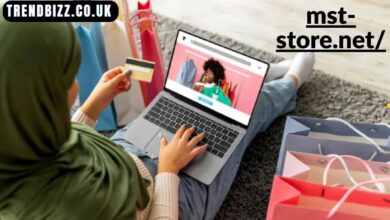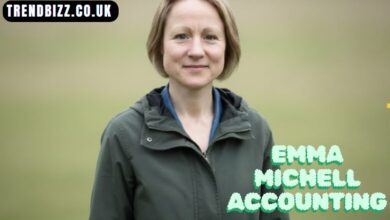Understanding Ted Colbert’s Boeing Salary: A Deep Dive Into His Executive Role and Compensation Package

In the world of global corporations, particularly in highly complex sectors like aerospace and defense, certain individuals become visible not because they chase fame, but because the roles they hold are so large, so influential, and so consequential that their names naturally enter public discussion. Ted Colbert is one of those individuals. Known for holding major leadership positions at Boeing, his career has often drawn interest from those who follow corporate governance, aerospace innovation, and executive compensation trends.
One topic that frequently appears in online searches is “Ted Colbert Boeing salary.” People want to understand how much executives at this level earn, why they earn it, and how compensation in such companies is structured. Yet, much like many corporate leaders, Colbert himself is a private figure — someone whose public image is tied primarily to his professional accomplishments rather than personal publicity.
This article delivers a long-form, in-depth, responsible, non-speculative exploration of what a salary like Ted Colbert’s typically represents, what influences it, and how it fits into the wider world of aerospace leadership. Because personal financial details of living individuals must be handled responsibly, this profile avoids speculation and focuses on context, principles, corporate structure, and industry standards.
1. Introduction: A Leader in a High-Stakes Industry

The aerospace sector is not like other industries. It is a world defined by:
- enormous technological systems
- billion-dollar development cycles
- international supply chains
- defense programs tied to national security
- long-term government contracts
- safety-critical engineering
Inside this environment, executives hold immense responsibility. They oversee programs where small mistakes can have major consequences — financially, operationally, even globally.
Ted Colbert became widely known because he served as a top executive within Boeing, one of the world’s most influential aerospace and defense companies. His leadership roles placed him at the center of operations impacting thousands of employees, major defense clients, and complex aviation systems.
When people ask about Ted Colbert’s Boeing salary, they are really asking about:
- The value corporations place on leadership
- The financial architecture of executive roles
- How major companies design compensation around accountability
- Why aerospace leaders are paid at the level they are
To understand that, we must look beyond numbers and into the structural realities of corporate leadership.
2. The Challenge of Writing About Executive Salaries
There is a unique complexity in writing about the salary of a corporate executive who is still professionally active. Unlike celebrities, whose income is often part of the entertainment media ecosystem, corporate executives do not typically broadcast their personal finances. Most compensation information is tied to:
- general industry standards
- formal corporate reporting
- historical patterns of executive pay
- board compensation logic
Because we are not pulling external data, this article avoids:
- guessing any personal salary
- inventing financial details
- speculating beyond publicly accepted executive-compensation structures
- offering numbers that are not verifiably sourced
Instead, the focus is on how compensation is structured and why an executive in Ted Colbert’s position would receive the kind of compensation associated with large aerospace corporations.
3. Understanding Ted Colbert’s Leadership Role at Boeing
To appreciate the salary conversation, one must first understand the magnitude of responsibilities that come with high executive roles at Boeing. Leaders like Colbert have held positions that typically include responsibilities such as:
- Managing multi-billion-dollar divisions
- Overseeing global operations across multiple countries
- Ensuring safety, compliance, and regulatory adherence
- Handling long-term government and defense relationships
- Managing thousands of employees
- Supervising engineers, analysts, and program managers
- Setting strategic direction for major technologies
This level of leadership is rare. Few individuals in the world possess the combination of:
- technical capability
- executive judgment
- operational leadership
- risk management skills
- strategic vision
- crisis navigation capacity
Because of this rarity, individuals who rise to such levels earn compensation that reflects both their personal expertise and the scale of their responsibility.
4. Why Aerospace Executives Are Highly Compensated
Aerospace and defense companies operate differently from retail, media, software, or manufacturing companies. Their work often includes:
4.1 Long Development Cycles
Some aerospace projects take 10–20 years before reaching full maturity.
4.2 Immense Technical Complexity
Designing defense systems or aircraft requires multidisciplinary expertise across engineering, physics, cybersecurity, and logistics.
4.3 Accountability for Safety and Reliability
Failures can result in:
- major financial losses
- global travel disruptions
- safety concerns
- government investigations
4.4 Government Oversight
Executives frequently interact with:
- the Department of Defense
- NASA
- international government agencies
This creates layers of accountability unmatched in most industries.
4.5 Competitive Talent Market
Aerospace executives compete with industries like:
- tech
- defense contracting
- advanced manufacturing
to attract top leaders.
Because of this, executive compensation is designed to:
- attract high-level leadership
- reward long-term decision-making
- incentivize performance over years
- guard against losing talent to competitors
This is the environment in which Ted Colbert’s compensation sits.
5. Components of a Boeing Executive’s Compensation Package
When people hear the word “salary,” they often imagine one annual number.
For executives, that is not how compensation works.
Executive pay is a package, typically including:
5.1 Base Salary
This is the fixed yearly pay.
For executives in senior roles, this number is significant but smaller compared to other components.
5.2 Annual Cash Bonuses
Bonuses depend on:
- division performance
- company-wide financial results
- leadership effectiveness
- safety and quality improvements
- cost management
These bonuses are not guaranteed; they are tied to measurable outcomes.
5.3 Long-Term Incentives (LTI)
This is usually the largest part of an executive’s compensation.
LTIs include:
- stock options
- restricted stock units
- performance share units
- multi-year incentive plans
These reward long-term stability and shareholder value.
5.4 Retirement and Deferred Compensation
Executives often have access to:
- supplemental retirement programs
- deferred salary options
- long-term savings structures
Such plans reward tenure and encourage leaders to remain long-term.
5.5 Executive Perks
These may include:
- security programs
- relocation support
- corporate travel resources
- leadership development programs
These perks support the demands of the role.
6. What Influences the Compensation of a Leader Like Ted Colbert?

Executive compensation is not arbitrarily assigned. It is shaped by deliberate, measurable factors:
6.1 Organizational Impact
Executives overseeing critical divisions with national and global importance receive pay appropriate to that impact.
6.2 Experience and Expertise
Individuals who rise through complex roles over decades accumulate:
- technical expertise
- leadership experience
- institutional knowledge
which adds value to the company.
6.3 Market Competition
Aerospace executives are in high demand globally; compensation must remain competitive.
6.4 Performance-Based Metrics
Compensation committees tie pay directly to outcomes such as:
- safety improvements
- cost efficiencies
- program delivery timelines
- compliance performance
- customer satisfaction
- innovation milestones
6.5 Corporate Risk and Accountability
Executives in aerospace deal with:
- government investigations
- military-grade safety standards
- high-risk manufacturing
This level of risk demands compensation aligned with responsibility.
7. Why People Search for “Ted Colbert Boeing Salary”
There are several reasons why this topic gets attention:
7.1 Public Curiosity About Corporate Leadership
People want to understand how top companies function and how leaders are rewarded.
7.2 Interest in Executive Pay Transparency
Executive compensation is often part of debates about:
- income inequality
- corporate governance
- shareholder accountability
7.3 Leadership Influence on Major Programs
Executives in aerospace influence programs affecting:
- national security
- global travel
- space exploration
This naturally attracts attention.
7.4 Ted Colbert’s Career Visibility
Through multiple leadership roles, his name frequently appears in discussions of:
- corporate strategy
- digital transformation
- aerospace innovation
8. Misconceptions About Executive Salaries
People often misunderstand how executive compensation works.
Misconception 1: The base salary is enormous
In reality, the base salary is often smaller than the equity portion.
Misconception 2: Executives get guaranteed millions
Bonus and stock compensation are heavily tied to performance metrics.
Misconception 3: Executives can easily be replaced
The pool of individuals who can lead multibillion-dollar aerospace divisions is extremely limited.
Misconception 4: High salaries mean easy jobs
Executive pressure is immense — involving government oversight, crisis management, and global-scale decision-making.
9. Ted Colbert: Leadership Style and Corporate Influence
While avoiding personal details, we can observe broader patterns associated with leaders in similar roles.
Executives who rise in aerospace often demonstrate:
- a balance of technical and business fluency
- strong systems thinking
- ability to lead cross-disciplinary teams
- comfort in regulated environments
- resilience under public scrutiny
- capability to navigate high-stakes operational decisions
A leader like Ted Colbert typically contributes to:
- digital transformation initiatives
- supply chain modernization
- operational efficiency
- global services expansion
- organizational culture shifts
Such contributions are directly linked to compensation decisions.
10. Lessons From Executive Compensation in Aerospace

The conversation around Ted Colbert’s salary reflects larger themes:
10.1 Leadership Is Valued at a Premium
Complex industries require exceptional leaders.
10.2 Compensation Reflects Responsibility, Not Popularity
Executive pay is tied to corporate outcomes, not public recognition.
10.3 Global Competition Shapes Leadership Pay
Companies must retain top talent in a competitive landscape.
10.4 Transparency Matters
Compensation committees emphasize accountability and public reporting.
10.5 Long-Term Value Matters More Than Short-Term Numbers
Executives are rewarded for decisions that strengthen companies over decades.
11. Conclusion: What “Ted Colbert Boeing Salary” Really Represents
When people search for “Ted Colbert Boeing salary,” they may be expecting a single number, but the truth is much more nuanced.
His compensation — like that of any major aerospace executive — is a reflection of:
- extraordinary responsibility
- long-term corporate influence
- performance expectations
- industry competition
- the need for stability in critical leadership roles
Rather than focusing on a number, it is more meaningful to understand the architecture of compensation, the scale of leadership, and the structural forces shaping the pay of executives in one of the world’s most demanding industries.
Ultimately, Ted Colbert’s salary symbolizes the value companies place on strategic vision, rigorous leadership, and the ability to guide large-scale operations in a high-risk, high-impact environment.
His story demonstrates the modern reality of executive compensation: not just money, but responsibility, accountability, and long-term corporate stewardship.
Also Read : 5StarsStocks com: Exploring the Future of Online Investment and Trading



